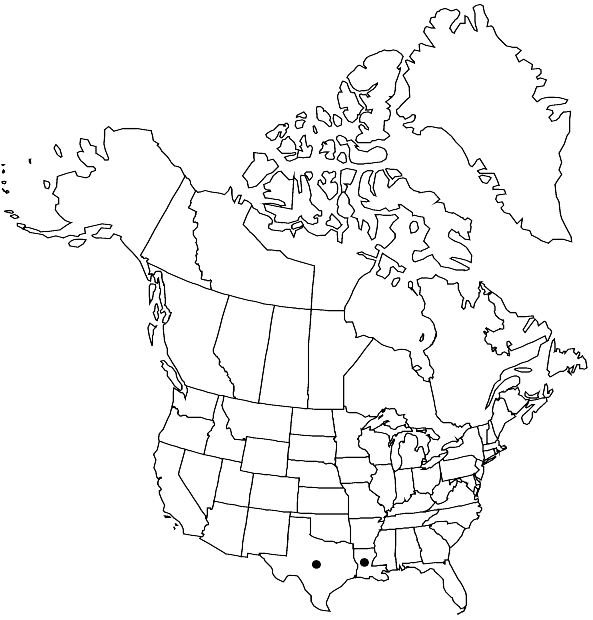Micromitrium wrightii
Bryologist 71: 116. 1968,.
Plants scattered in abundant protonemata, green. Stems virtually absent. Leaves erect, linear-lanceolate, rarely with narrow, toothed shoulders, gradually and slenderly acuminate, 1–2 × 0.15–0.26 mm, margins plane, entire or with short single or double teeth distally. Sexual condition synoicous or dioicous. Capsule cleistocarpous or rarely dehiscing by a ring of differentiated cells distal to the equator, yellow- to orange-brown, globose or slightly flattened, slightly apiculate; exothecial cells in 2 layers, stomates numerous and confined to proximal half. Spores fewer than 100, various shapes, proximal face not concave, 50–84 × 40–66 µm, red-brown or dark brown.
Phenology: Capsules mature year around.
Habitat: Soil in shaded ravines, drying mud, clay in dry sloughs
Elevation: low elevations (0-100 m)
Distribution

La., Tex., West Indies (Cuba).
Discussion
Although the leaves of Micromitrium wrightii are most accurately described as ecostate, the largest leaves may have suggestions of a costa. Some have merely thick-walled cells in the median part of the leaf, and others may have ± 3 median, undifferentiated cells in a double layer.
Micromitrium wrightii is known from five or fewer localities.
Selected References
None.